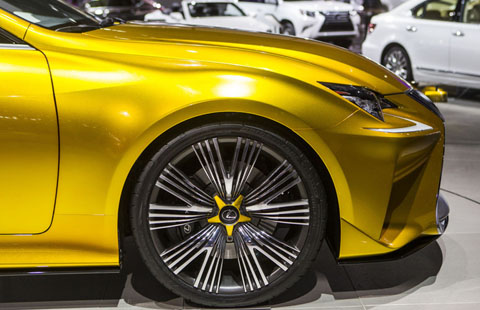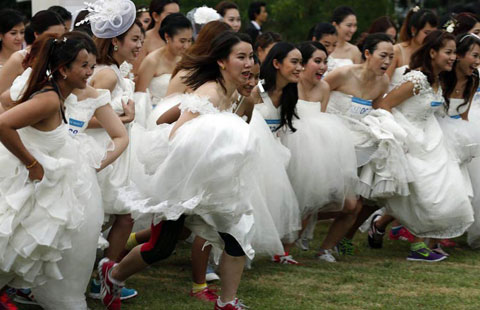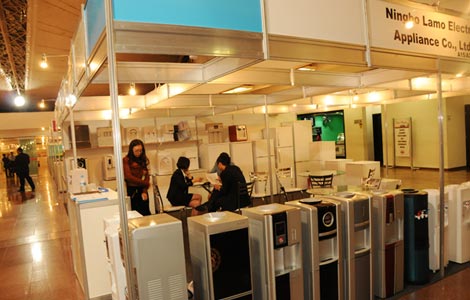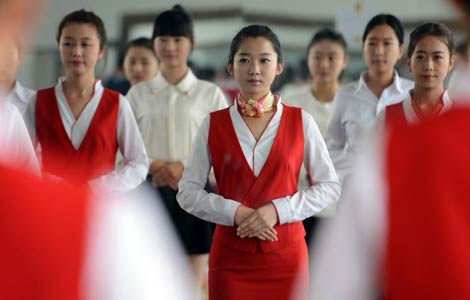Informed outsider with the inside view
Updated: 2014-12-01 08:31
By ANDREW MOODY(China Daily)
|
||||||||
Micklethwait, who was educated at the top Catholic public school Ampleforth and read history at Magdalen College, Oxford, joined The Economist as finance correspondent in 1987 after a spell in investment banking in New York.
Before becoming editor-in-chief eight years ago, he spent long periods in the US as bureau chief in both New York and Los Angeles as well as US editor.
There he saw firsthand the government of California, which is cited in the book as an example of democracy gone wrong. Instead of serving the majority, its administration instead was in hock to a multitude of special interest groups. Many public sector workers retired at 50 on 90 percent final salary pensions. Governor Jerry Brown has recently been trying to turn round some of this.
"I think in the US generally, it cannot make sense for the richest 5 percent to get more money through the mortgage tax system than the bottom 50 percent get in social housing.
"In China, it cannot make sense for local governments to rely on funding by grabbing land on the outskirts of the city and selling it to make the system work. That doesn't work either."
Micklethwait says one of the most interesting aspects about China at present is its economy.
Since the financial crisis it has been a major driver of global growth but the recent 7.3 percent third quarter GDP rise was the weakest for 66 months.
"I saw a banker the other day and he said, OK, the last century was the American century. If you put your money at the beginning, you would be miles better off at the end but you would have had one or two years that would not go so well," he says.
"I think the same is true for China this century. It is possible to have the flow of movement in your direction but at individual times things will not be so good."
He thinks China's major problem is in its banking system with the proliferation of shadow banks.
"I am not worried about this pulling China apart since the government can still control the situation and there is more than enough money in the system. Dealing with it is going to cause a lot of pain. At some point they are surely going to have to let some institutions go down."
Micklethwait says on speaking tours around the world, people have focused most on the China aspects of the book.
Failing to adopt efficient government systems is why China from the 16th century onwards lost its dominance in the world to the West, the authors observe.
"I think when Thomas Hobbes (the author of Leviathan, who developed the idea of the nation state) was born in 1588 very few would have bet the West would catch up and overhaul China," he says.
Yet it might be China and other emerging nations that fully take ownership of the "fourth revolution" and not the West this time.
"The fact is that these are the places that are thinking quite hard about how you do things better. There is nothing ideological really."
BIO
JOHN MICKLETHWAIT
Editor-in-chief, The Economist
Age: 52
Education
· Ampleforth College
· Magdalen College, Oxford
Career
· Banker, Chase Manhattan, New York, 1985-87
· The Economist, 1987-present
· (Finance correspondent, 1987-90; Los Angeles bureau chief, 1990-93; business editor, 1993-97; New York bureau chief, 1997-99; US editor 1999-2006; editor-in-chief, since 2006)
· Editor's Editor, British Society of Magazine Editors, 2010
· Trustee, British Museum since 2011
Book: World Order: Reflections on the Character of Nations and the Course of History by Henry Kissinger
Film: The Godfather (1972, dir. by Francis Ford Coppola)
Food: Mainly Italian.
Most Viewed
Editor's Picks

|

|

|

|

|

|
Today's Top News
Ailing school district seeks Chinese help
Web options proliferate for Chinese shoppers
Artists seek US audiences
Alibaba, Amazon in online battle
China records 497,000 people with HIV/AIDS
HK protesters clash with police outside govt headquarters
Cross-border e-commerce booming
New visas a boon to real estate
US Weekly

|

|















